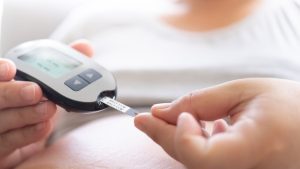Articles / Women with PCOS have 8X risk of suicide attempts

The name implies polycystic ovarian syndrome (PCOS) is purely an ovarian problem, so infertility is typically the first thing that comes to mind, says Professor Helena Teede, endocrinologist and Professor of Health Research Implementation at Monash University—and lead author of the international guideline released last year.
However, as a hormonal and endocrine condition, the impact is much broader, and the physical features can exacerbate the mental ones.
An adolescent girl, for example, might experience weight gain, acne, hirsutism, irregular cycles and possibly concerns about fertility, says Professor Teede.
“All those issues, especially in young women, often really adversely affect their mental health.”
The psychological features of PCOS are significant, she adds.
“Up to 80% of women with PCOS have symptoms of depression and anxiety. And many of them meet clinical criteria for diagnosis.”
Studies have shown that psychosexual function seems to be impaired in these women and that eating disorders are more prevalent.
Many studies have also shown they have a high rate of self-harm, Professor Teede says.
One recent study found women with PCOS had an 8.47-fold increased risk of attempting suicide compared to the control group.
“So clearly, we are not identifying and addressing their mental health challenges,” says Professor Teede.
She offers some tips to help GPs manage emotional wellbeing in women with PCOS.
Foremost is the need to make a timely diagnosis, Professor Teede says.
Women often see two or three doctors before getting a diagnosis, which “leads to quite a high level of dissatisfaction and distress,” she says. “And when they are diagnosed, they’re not given enough information.”
“All of that adds to the mental health burden of the condition.”
“If women know what the problem is, they can access information, prevention and treatment. If they don’t have a diagnosis and they’re just put on the pill in their adolescent years, they don’t have the opportunity to address all the features.”
She says GPs can find a simple diagnostic algorithm in the current international PCOS guideline.
Giving women reliable, evidence-based information is also crucial. “That in itself is treatment,” Professor Teede says.
Providing women with high-quality resources will save time in consultations and reduce women’s vulnerability to misinformation or exploitation, she adds.
The PCOS guideline is accompanied by a range of free resources you can share with patients.
Professor Teede recommends directing women to the AskPCOS app. Developed by leading international PCOS experts and co-designed by women with PCOS, it is available on Apple and Android.
“It goes through all the clinical features of the condition,” she says. “It talks about all the mental health challenges… but then it links women back into liaising with their health professional. It’s about improving engagement between the GP and the patient.”
“It’s all free, evidence based and has information in 15 languages,” she adds.
GPs should screen women who have been diagnosed with PCOS for mental health disorders, Professor Teede says.
“GPs probably do that better than anyone else. Simple mental health screening tools like HADS are really useful in this condition.”
The PCOS guideline has an algorithm covering screening, diagnosis, and treatment of emotional wellbeing in women with PCOS. It stresses the importance of taking a personalised approach and the need to carefully consider how treatment will affect a patient’s overall wellbeing.
If initial screening for anxiety and depressive symptoms is positive, the guideline recommends:
If you suspect psychosexual dysfunction, the guideline recommends conducting further assessment and providing a referral or treatment as appropriate.
The guideline advises that eating disorders and disordered eating must be considered, irrespective of your patient’s weight, particularly in the context of weight management and lifestyle interventions.
If you identify any concerns in this area, it recommends:
Before starting women on medical therapy for their mental health, it’s essential to consider all the features of PCOS, Professor Teede says.
“For example, we know infertility, severe acne, and significant hirsutism can have a major impact on mental health. We also know that treating those features actually significantly improves mental health.”
“In this condition, knowledge, information, and treatment of other features can make a big difference. And it’s important to consider those before necessarily jumping in to treat this as an isolated mental health condition.”
Find out more on Monash University’s PCOS website, where more quick reference information for GPs will be available soon.

Managing Paediatric Anxiety in General Practice

OSA – Which Test for Which Patient

Musculoskeletal Health in Menopause

AHPRA-Proof Your Practice – Social Media Risks for GPs




Strongly agree
Somewhat agree
Neutral
Somewhat disagree
strongly disagree
Listen to expert interviews.
Click to open in a new tab
Browse the latest articles from Healthed.
Once you confirm you’ve read this article you can complete a Patient Case Review to earn 0.5 hours CPD in the Reviewing Performance (RP) category.
Select ‘Confirm & learn‘ when you have read this article in its entirety and you will be taken to begin your Patient Case Review.
Menopause and MHT
Multiple sclerosis vs antibody disease
Using SGLT2 to reduce cardiovascular death in T2D
Peripheral arterial disease
